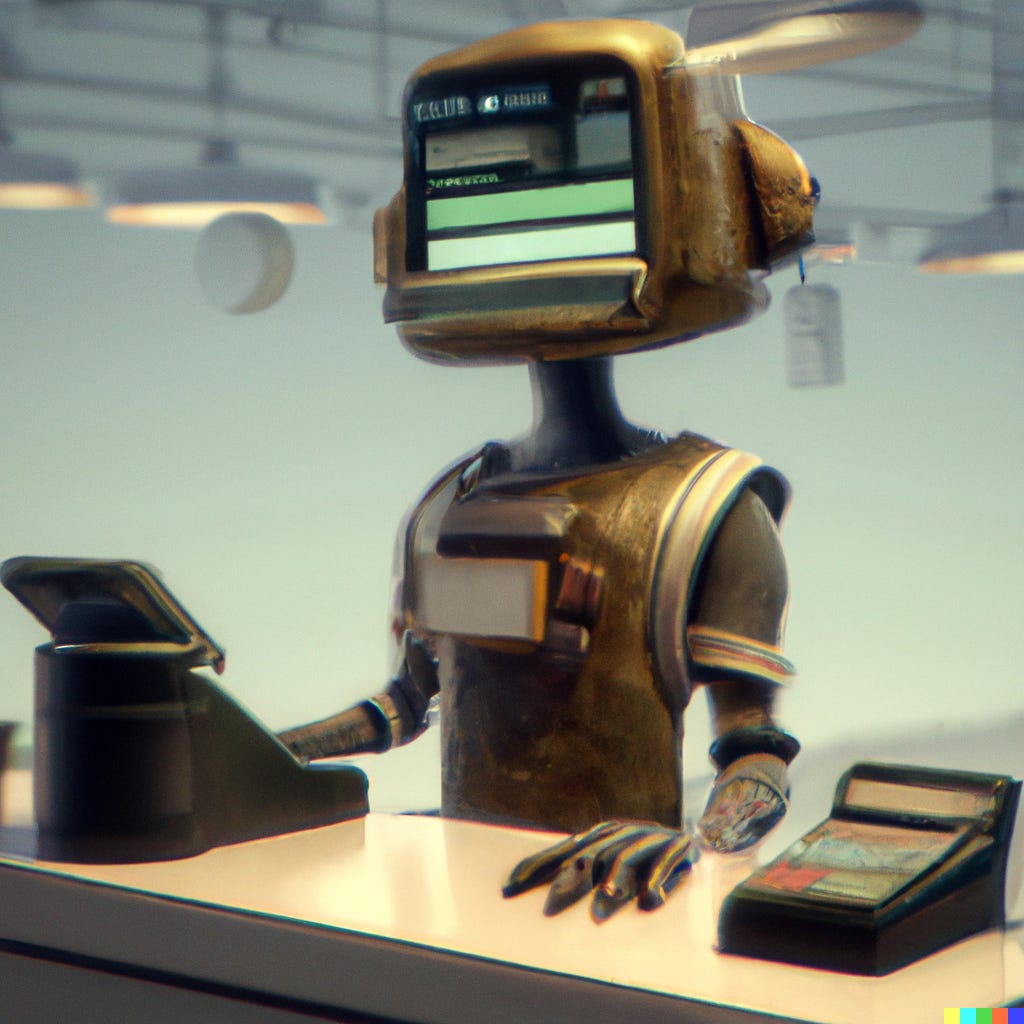What happens after the ChatGPT free-trial period ends?
My new piece in the Atlantic, on how money will kill ChatGPT's magic.
[Dall-E 2 prompt: a robot cash register, digital art]
I have a new piece in The Atlantic about the future of ChatGPT. I think it’s a good one. Please read and consider sharing it with your networks.
(I also spoke with Caroline Mimbs Nyce about the lessons we can take from the first couple months of Elon’s Twitter failures. That was a lot of fun.)
Loyal readers of this Substack will recognize a few themes in the ChatGPT piece. The main reason why I became so interested in studying the history of the digital future was to better understand the mistakes people routinely make when speculating about the trajectory of emerging technologies.
That’s what I’ve noticed with ChatGPT and Dall-E 2 this year. Generative AI tools have become much more sophisticated at an incredible rate. This is the first technology to leave people with a real sense of magic in over a decade. And that has inspired some wild speculation about how the entire world is about to change.
The main lesson I’ve taken from examining previous technologies when they were inviting this sort of grand pronouncement is this: take a step back and focus on the revenue streams. Industries, over time, build in the direction of money. ChatGPT is free for now, and that’s encouraging a thought experiment where we imagine these tools being free and ubiquitous, everywhere and for everyone.
The future isn’t going to look like that. Right now, ChatGPT is free for users and expensive for OpenAI. It’s essentially a marketing campaign, aimed at building public excitement, setting the frame of reference for how we view the technology, and creating a constituency that will defend it from regulatory and legal hurdles.
ChatGPT won’t be free forever though. It’s going to build toward maximizing investor returns. (Of course it will. This seems so obvious, and yet it always seems to be left out of the scenarios crafted by techno-optimist futurists.) And that will alter how it is used, who it benefits, and who it harms. As I say in the piece, “The future of generative AI might seem like uncharted terrain, but it’s really more like a hiking trail that has fallen into disrepair over the years. The path is poorly marked but well trodden.”
There’s more in the piece. Please take a look, and let’s chat about it in the comments section of this post.
This is likely my last post of the year. I’ll have much more to say about AI, the digital future, and lessons from digital history in 2023. I have a list a dozen essays on tech history, futurism, and politics that I’ll be writing on Substack or in other venues. I’ll also be making my way through the entire WIRED archive for a second time, which should surface some hidden gems. And, since technology and politics probably won’t get any less ridiculous in 2023, I expect I’ll have some snarky news-of-the-week commentary to share as well.
Thanks for reading, folks. Looking forward to sharing more in the new year.
Best,
DK





I just found this Substack a few weeks ago and I find it to be incredibly informative and helpful. I will be starting a PhD in January and I will be examining the sociological and criminological impact of AI on society and I fully intend to read everything you have. Take care, have a lovely Christmas and I look forward to reading more from you in the new year.